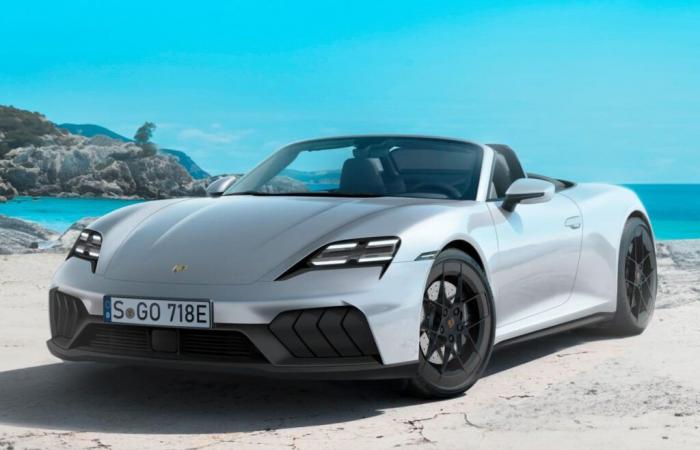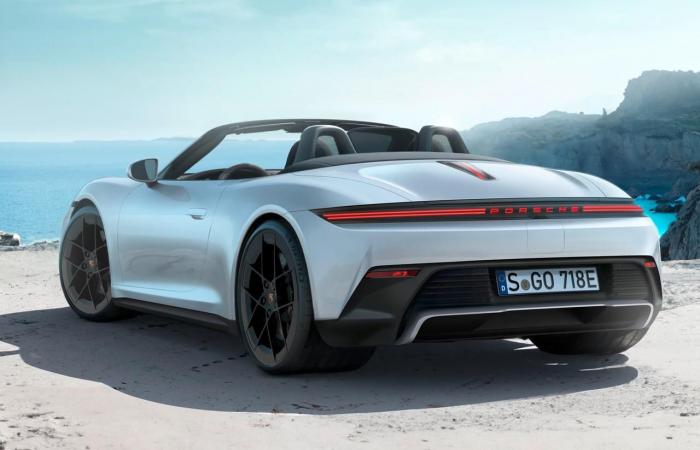Electric car news
The transition to electric power in the legendary Porsche 718 range encounters an unexpected obstacle. Initially planned for 2025, the release of the 100% electric versions of the Boxster and Cayman has been postponed following a major event in the battery industry.
A crucial partnership jeopardized
Porsche had bet big on high-performance batteries from Northvolt to power its future electric 718s. This strategic choice aimed to maintain the agility and driving sensations that have made these models famous, while propelling them into the era of electromobility. Northvolt batteries, recognized for their exceptional energy densityshould make it possible to maintain a contained weight and performance worthy of the brand.
Unfortunately, the recent bankruptcy of Northvolt abruptly ended this promising collaboration. This situation forces Porsche to completely review its battery supply strategy, which causes a significant delay in the development of electric 718s.
The technical challenges of an electric sports car
Converting a sports car to an electric model is no easy feat. Porsche had set ambitious objectives for its future 718s:
- A autonomy minimum 400 km
- An 800V architecture allowing ultra-fast charging up to 270 kW
- And strategic battery placement behind the driver's seat to optimize the center of gravity
These specifications aimed to deliver a driving experience true to Porsche DNA, while embracing electric technology. The challenge now is to find a new supplier who can meet these requirements without compromising performance or drivability.

An impact beyond Porsche
Northvolt's bankruptcy has repercussions far beyond Porsche. Many European manufacturers were counting on this company to free themselves from dependence on Asian batteries. Audi, for example, must also review its plans for its future electric models based on the PPE platform.
This situation highlights the fragility of the battery supply chain in Europe. Despite massive investments and support from governments, the European battery industry struggles to compete with Asian giants in terms of costs and production capacity.
A temporary return to thermal?
Faced with these difficulties, Porsche plans to extend the marketing of its thermal models beyond 2030. This decision, which may seem a step backwards, demonstrates the complexity of the electric transition in the sports car segment.
The Stuttgart manufacturer is not the only one to review its strategy. Other major players in the automotive industry, such as Volkswagen and Stellantis, have also had to adjust their battery production ambitions in Europe and North America.
What solutions for the future?
To overcome these obstacles, several avenues are available to Porsche:
- Search for a new partner capable of supplying high performance batteries
- Investing in the development of your own battery technologies
- Explore alternatives like solid electrolyte batteriespromising even greater energy density
Whatever path is chosen, Porsche will have to act quickly to avoid losing ground in the face of increasingly fierce competition in the electric sports car segment.
This delay in the launch of electric 718s raises crucial questions about the future of the European automobile industry. The ability of manufacturers to secure a reliable supply of high-performance batteries will be decisive for their success in the era of electromobility.
Despite these challenges, Porsche's commitment to electrification remains strong. The brand has already proven with the Taycan that it can create exceptional electric cars. The road to electric 718s worthy of the name may be longer than expected, but it promises to be exciting.
Written by Albert Lecoq
Specialist in electric car buying guides, I am passionate about new technologies and am a strong supporter of the adoption of electric technology and sustainable mobility.
React to the article








